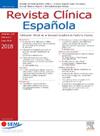Desde la obesidad a las comorbilidades: una propuesta de atención integral para ganar en salud de la Sociedad Española de Medicina Interna
IF 1.7
4区 医学
Q2 MEDICINE, GENERAL & INTERNAL
引用次数: 0
Abstract
Obesity is currently recognized as a chronic, progressive, and relapsing disease, and constitutes a major global public health challenge. This document, promoted by the Spanish Society of Internal Medicine through its Working Group on Diabetes, Obesity, and Nutrition, outlines a comprehensive, multidisciplinary approach to care, with a specific focus on obesity-related comorbidities. Excess adipose tissue is conceptualized as a systemic pathogenic agent that actively contributes to the pathophysiology of numerous complications, including cardiovascular disease, heart failure, chronic kidney disease, osteoarthritis, obstructive sleep apnea, and metabolic dysfunction-associated steatotic liver disease (MASLD). Furthermore, the document reviews the current evidence base regarding pharmacological interventions for obesity, addressing both their overall efficacy in weight management and their specific therapeutic impact in the context of the distinct obesity-associated comorbidities for which clinical benefit has been demonstrated.
The document endorses the implementation of the Edmonton Obesity Staging System (EOSS) as a pivotal framework for the clinical stratification of risk in individuals with obesity, facilitating a more nuanced and personalized therapeutic approach that prioritizes the functional, metabolic, and prognostic dimensions of the disease. In this context, the document proposes a paradigm shift in the therapeutic objectives for obesity management, moving beyond a sole reliance on anthropometric metrics, such as body mass index (BMI) or absolute weight reduction. Instead, it emphasizes a pathophysiological and patient-centered approach focused on the prevention of obesity-related complications, the early detection and management of its comorbid conditions, and the sustained improvement of both quality-adjusted and overall life expectancy, while simultaneously promoting the elimination of stigma and discrimination.
从肥胖到共病:西班牙内科学会关于健康益处的综合护理建议
肥胖目前被认为是一种慢性、进行性和复发性疾病,是一项重大的全球公共卫生挑战。该文件由西班牙内科学会通过其糖尿病、肥胖和营养工作组推动,概述了一种综合性、多学科的护理方法,特别关注与肥胖相关的合并症。过多的脂肪组织被认为是一种全身性的致病因子,它积极地促进了许多并发症的病理生理,包括心血管疾病、心力衰竭、慢性肾脏疾病、骨关节炎、阻塞性睡眠呼吸暂停和代谢功能障碍相关的脂肪变性肝病(MASLD)。此外,该文件回顾了目前关于肥胖药物干预的证据基础,阐述了它们在体重管理方面的总体功效,以及它们在不同的肥胖相关合并症的背景下的特定治疗效果,这些合并症已被证明具有临床益处。该文件支持将埃德蒙顿肥胖分期系统(EOSS)作为肥胖症患者临床风险分层的关键框架,促进更细致和个性化的治疗方法,优先考虑疾病的功能、代谢和预后方面。在此背景下,该文件提出了肥胖管理治疗目标的范式转变,不再仅仅依赖于人体测量指标,如体重指数(BMI)或绝对体重减轻。相反,它强调病理生理学和以患者为中心的方法,重点是预防肥胖相关并发症,早期发现和管理其合并症,以及持续改善质量调整和总体预期寿命,同时促进消除耻辱和歧视。
本文章由计算机程序翻译,如有差异,请以英文原文为准。
求助全文
约1分钟内获得全文
求助全文
来源期刊

Revista clinica espanola
医学-医学:内科
CiteScore
4.40
自引率
6.90%
发文量
73
审稿时长
28 days
期刊介绍:
Revista Clínica Española published its first issue in 1940 and is the body of expression of the Spanish Society of Internal Medicine (SEMI).
The journal fully endorses the goals of updating knowledge and facilitating the acquisition of key developments in internal medicine applied to clinical practice. Revista Clínica Española is subject to a thorough double blind review of the received articles written in Spanish or English. Nine issues are published each year, including mostly originals, reviews and consensus documents.
 求助内容:
求助内容: 应助结果提醒方式:
应助结果提醒方式:


